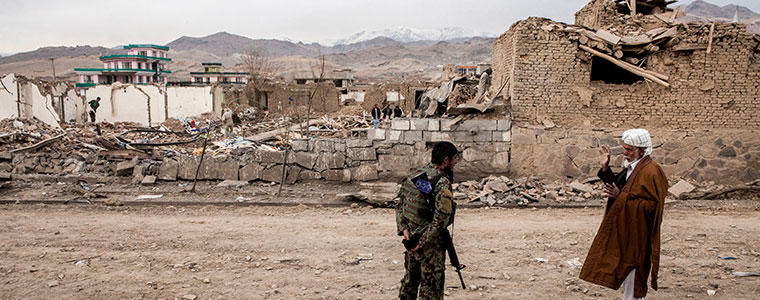
A regional solution to Afghanistan has long been touted as an essential ingredient of any peaceful transition. Much has been said and written about it; yet, most of it only rehearses its importance and why no Afghan settlement is likely to hold without it. The discussion has remained fairly weak on prescriptions, at best banking on rather idealistic ideas of Afghanistan's near and far neighbors accepting non-interference. Not many have explained the incentive structures for countries like Pakistan, Iran, some of the Central Asian Republics, India, etc. to do so, and even more importantly, what it would take to get their interests to synergize.
All along, we have understood that the regional states have a long history of mistrust and tensions and would likely remain more concerned about their bilateral equations rather than taking a truly regional approach, thereby choosing to overcome their differences for the sake of peace in Afghanistan. And therefore, it is widely accepted that outside powers would have to try and create conditions and broker a regional arrangement which prevents Afghanistan from becoming a proxy battleground for its more powerful neighbors.
Few, however, seem to have thought through this proposition and whether the kind of concessions needed to make the regional piece work are realistic to expect from outside powers. Everyone assumes that it will be the U.S. that will have to pull this off. Yet, a closer look suggests that Washington is simply not in a position to prioritize a truly regional approach to the region ahead of its own bilateral ties with respective countries.
Let me use the two most problematic relationships to highlight the problem: Pakistan-India and U.S.-Iran. There has been constant acknowledgement that Pakistan is the most important external actor when it comes to ensuring peace in Afghanistan. What will get Pakistan to play a constructive role: the answer, as we detailed in a recent USIP-Jinnah Institute report on Pakistan's interests lies, in large part, in addressing Islamabad's concerns vis-à-vis Indian presence in Afghanistan. This, at a minimum, requires an active dialogue on development and intelligence issues between the two sides – and most likely might require New Delhi to make significant concessions at the end of the day.
On Iran's Afghanistan policy, recent analyses suggest that Tehran's fundamental interests overlap greatly with the U.S. but that the state of the bilateral equation between the two sides is one of the reasons Tehran has decided to support the Taliban and use other subtle (and not so subtle) means to challenge the U.S. presence. Most Iran experts believe that Tehran sees this is a quid pro quo for the tensions over the U.S.'s overall policy towards Iran.
If a regional understanding in Afghanistan were to be prioritized, it would mean the U.S. would need to take a very different approach toward Tehran and engage the Pakistan-India equation head on. It is fairly obvious that neither conform to the current priorities and mood in Washington. This may well be for good reason but that is irrelevant to my point. The outcome is what matters: the fact that these bilateral concerns trump the need to work the Pakistan-India and Iran-U.S. equations in order to change the respective policies of these countries toward Afghanistan.
The unfortunate part is that we are running out of time. The U.S., will likely be unable to pull this off for reasons cited above; and yet there is no other power or entity on the horizon that seems to be a natural fit to take up this role.
Perhaps the effort should shift from hoping regional actors will somehow agree to behaving differently toward Afghanistan to identifying who (and what format) has the best shot at succeeding in getting the region on a common platform. Holding regional and global meetings alone won't cut it.



